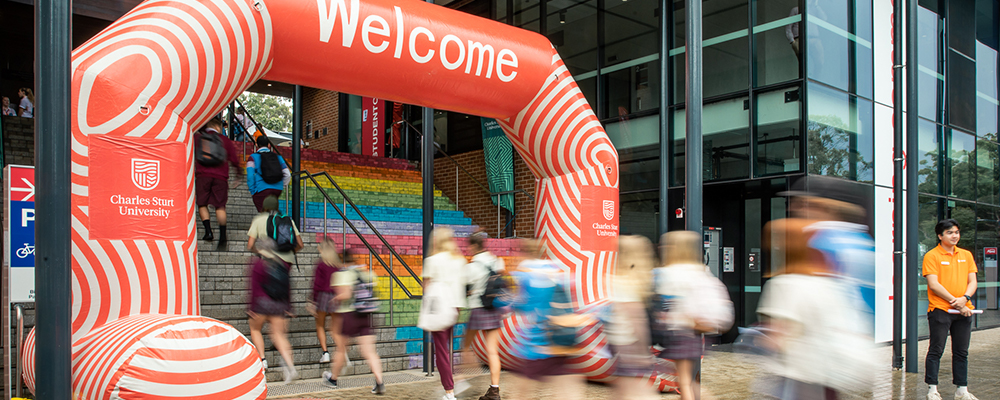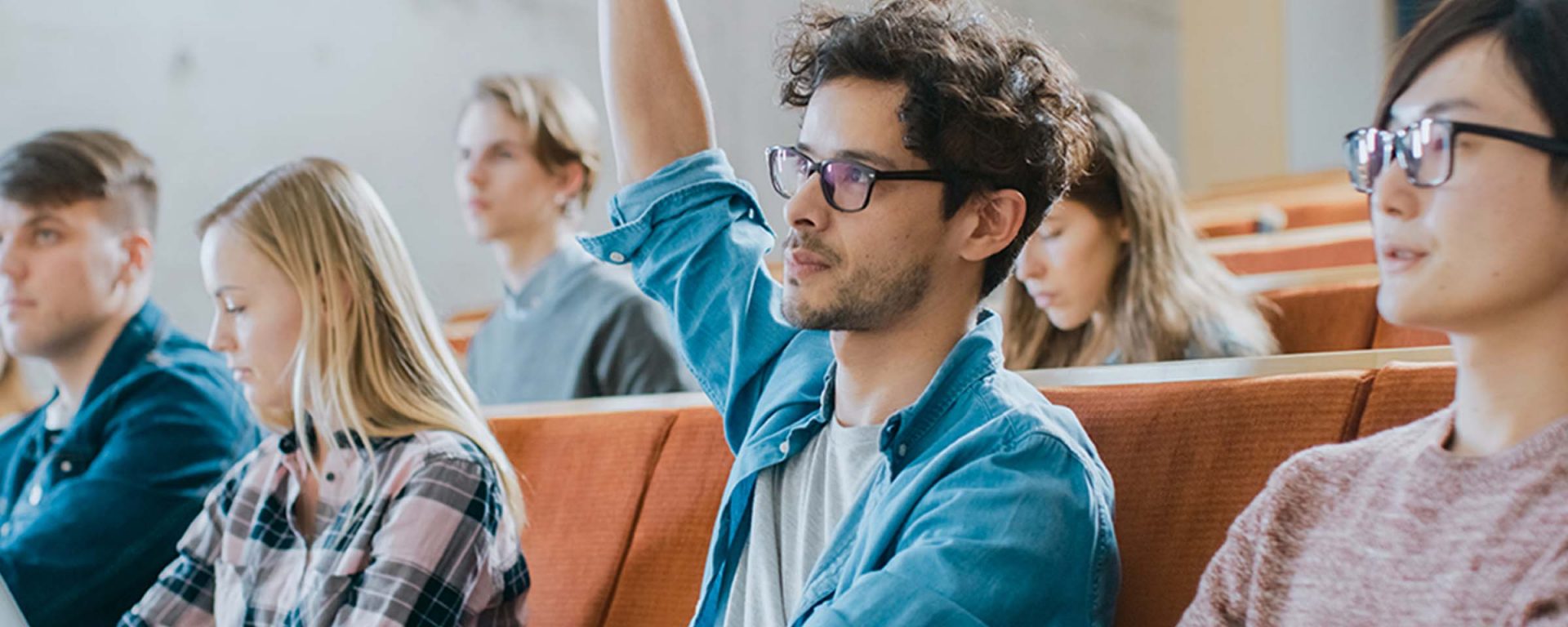Universities are very interesting places. Lots of tradition. Strange hats and robes. Fancy words. But it can all get a bit confusing.
So we want to remove the mystery around different aspects of university life – one word at a time. Well, in this case, it’s two words. Visiting scholar.
Have you heard of a visiting scholar? If not, don’t worry. We’re about to break it down for you – with an example of a remarkable international scholar who visited our regional campuses.
Let’s dig in.
So… what is a visiting scholar?
A visiting scholar (also known as a visiting researcher, visiting fellow, visiting lecturer or visiting professor) is an academic who visits a host university to teach, lecture or perform research in their area of expertise. It’s a pretty big deal to be invited to another uni as a visiting scholar. It’s a recognition of a scholar’s expertise in the field and something to be very proud of.
Charles Sturt plays host to leading international scholar

At Charles Sturt University, we were lucky enough to host leading human rights activist Associate Professor Leonie Pihama as a visiting scholar. Leonie visited us from New Zealand to give an exclusive lecture, participate in panel discussions and collaborate with others in conversation circles.
Leonie is Director of the Te Kotahi Research Institute at the University of Waikato, and Director of Māori and Indigenous Analysis Ltd. A leading Kaupapa Māori educator and researcher, Leonie works in the intersecting fields of education, health, whānau wellbeing, Māori immersion education, policy analysis, Māori women’s issues and the politics of the representation of Indigenous people.
Insight sat down with Leonie
As a researcher and activist, much of Leonie’s work is centred on issues facing contemporary Indigenous people, specifically in New Zealand.
“A lot of our work is based around looking at the regeneration and resurgence of traditional knowledge – so knowledge, language, culture, ceremony – all of those things about Indigenous wellbeing.
“The other part of the work is thinking about the impact and the destruction that colonisation caused to those knowledges. And the consequences or outcomes of those disruptions – what was the impact of that?
“What’s been the impact of the denial of language, separation of families, removal from land, and denial of culture and ceremony?
“So a lot of our research is in those two areas, but they’re not disconnected – because what we know is that a return to language and culture is a pathway to return to wellbeing.”
When asked about the issues facing Māori people and Indigenous Australians, Leonie sees both similarities and differences.
“Similar in terms of the overarching intention of colonisation. Similar things played out. Denial of personhood and humanity. Dehumanisation of Indigenous nations. Removal of language. So that’s similar – but the way in which they played out in the territories was different.
“The land base is different. This land is vast – and so the way in which community was formed for Indigenous people here is different to how it was formed at home. So those geographical and environmental differences really do play out and I think they make a huge difference.
“But I think in terms of pathways to healing and pathways back to being self-determining, there are similarities again – but also differences. Because we have a treaty in New Zealand and there isn’t a treaty in Australia. We have a treaty where we can go back as a touchstone and say: Well actually, this relationship is meant to look like this. But you don’t have treaties here – so that’s a difference too.”
Leonie’s experience as a visiting scholar
During her time at Charles Sturt, Leonie appeared across three campuses discussing historical trauma, Māori culture and healing the impact of family violence. The formats ranged from a public lecture to intimate conversation sessions with staff and students.
“I’ve done the one formal presentation, but I think in the two days we’ve done six conversation sessions about all different things. It’s been really valuable and it’s been great having people that have really wanted to have these kinds of conversations.”
But it’s not just Charles Sturt staff and students learning from Leonie. She’s gained knowledge on this trip as well.
“The session at the language centre [First Nations Study Centre] was really great. While it’s a conversation, I got a lot of learnings out of how people were talking about the language teaching here, and working the language as a way to negotiate relationships in the community.
“We had a lot of conversations around the philosophy of the university – the Wiradjuri term ‘yindyamarra winhanganha’ and what that means. My questions were around: how do you live that? How is it lived in every part of the university? Because I think you’ve got this really incredible base for a philosophy of the university. And I’m kind of curious about how that’s embedded in all the layers of the university. So I’ve been learning a lot about the relationships you have with the people of this land and what that means. The conversations have been really interesting.”
And what did Leonie personally want to achieve out of the visiting scholar program?
“Relationships. That was always my thinking. And accepting the invitation was really accepting an invitation to this land, first and foremost, and then to the university. A lot of the conversations we’ve had have really been about how do we develop these really enduring, meaningful relationships within institutions that are affirming of the nation of the land and the Indigenous people of that land? So it’s really been all about relationships.”
How can you create a world worth living in?
Interested in a research career? Find the right course to get you there with Charles Sturt – and do your bit to create a world worth living in.
You can learn more about the different types of research we’re involved in, including speech pathology, biodiversity and agriculture.
Find out more at Open Day
Keen to see what life at uni is really like – for you and for visiting scholars? Visit us at our Open Day. It’s a chance to go behind the scenes and get a first-hand look at what uni is all about. You’ll chat with current students about their experiences, meet our expert teaching staff and discover the fun side of uni through our clubs, societies and free entertainment.



You must be logged in to post a comment.